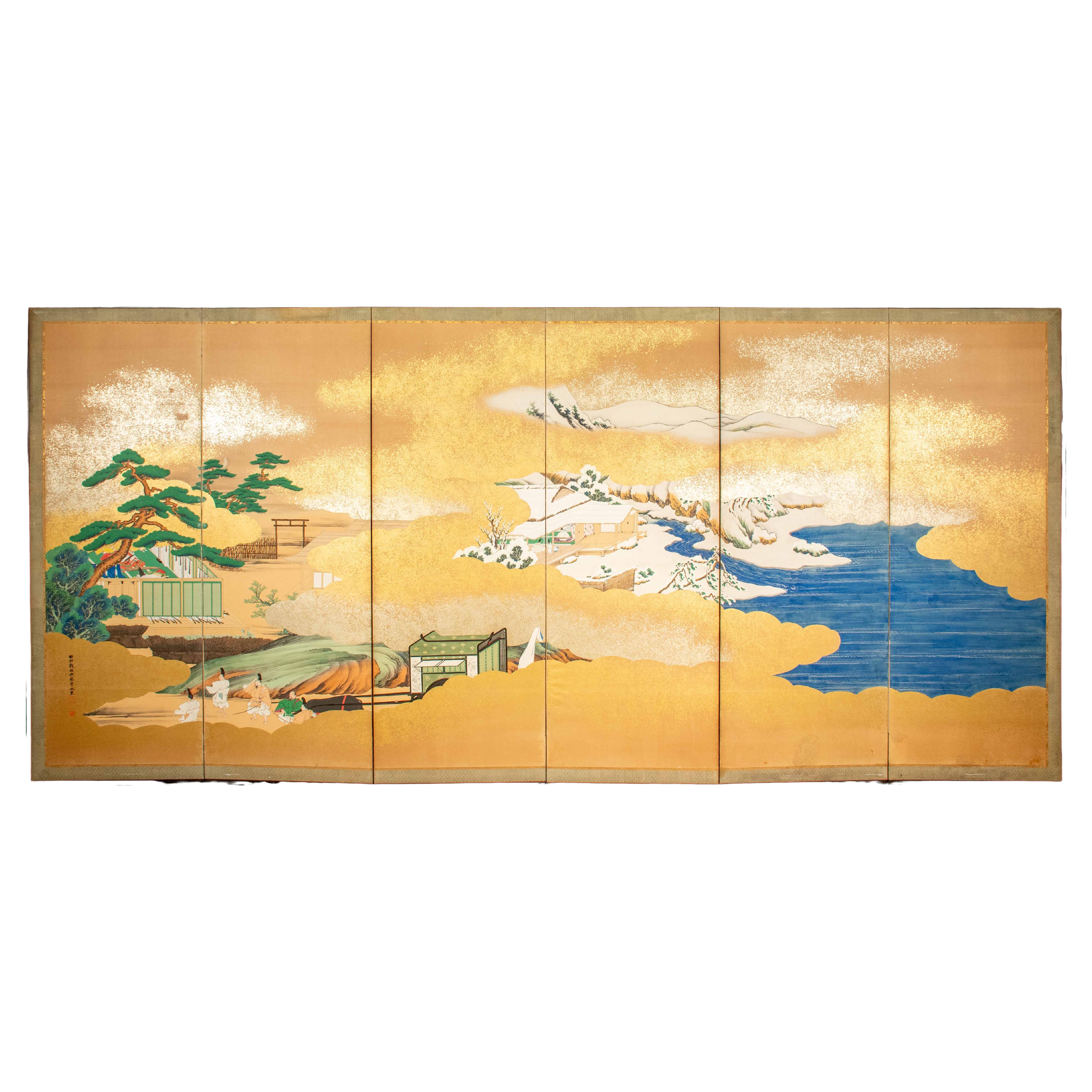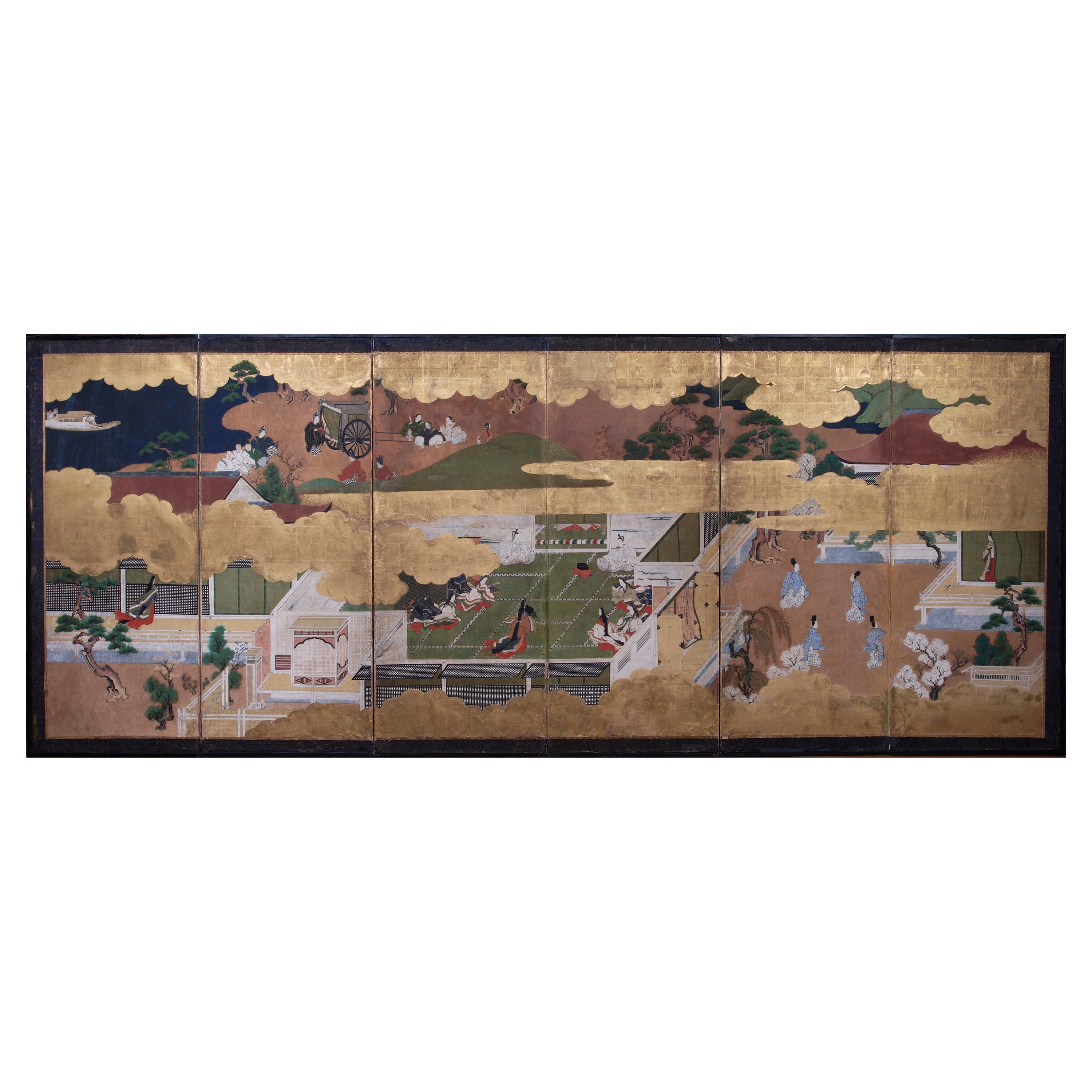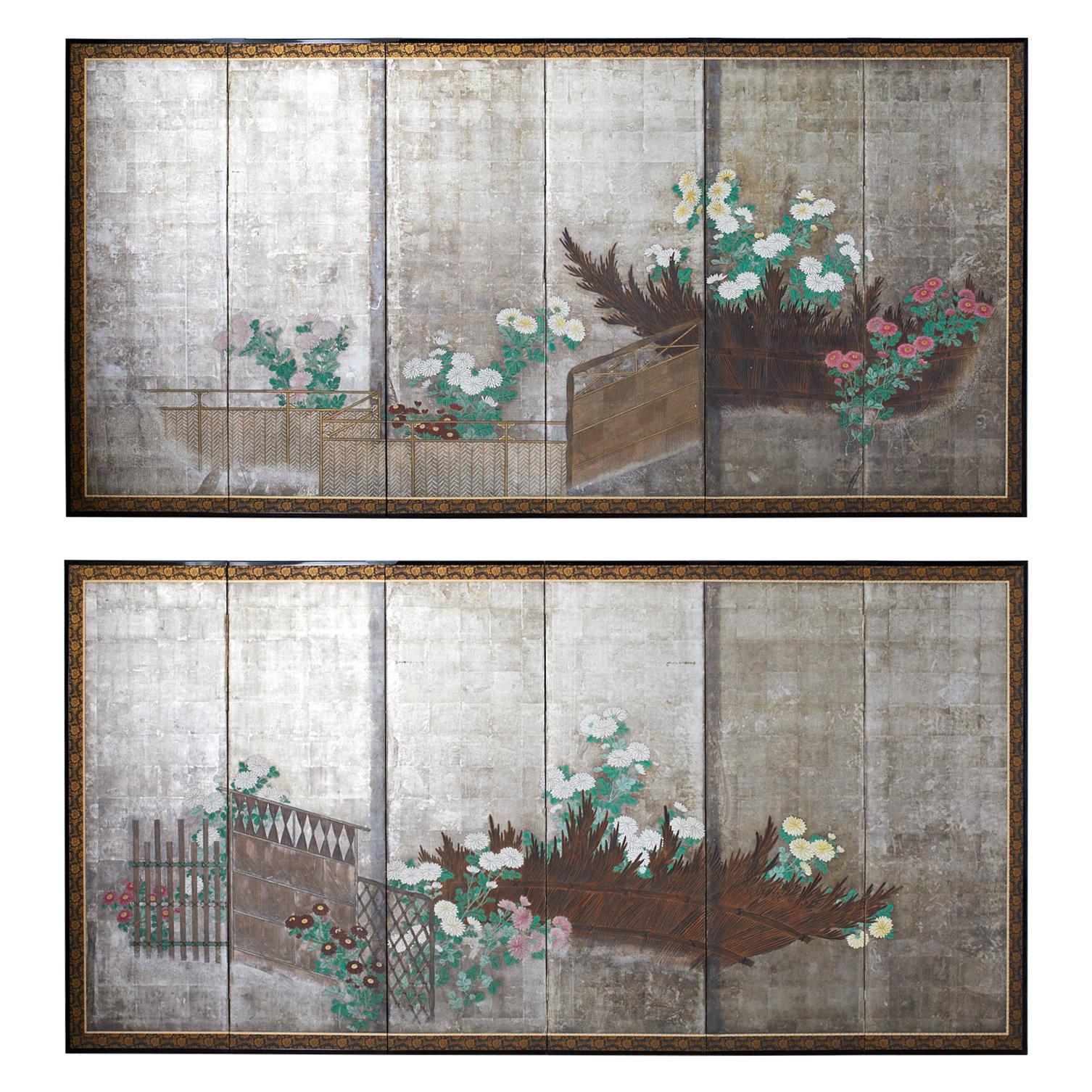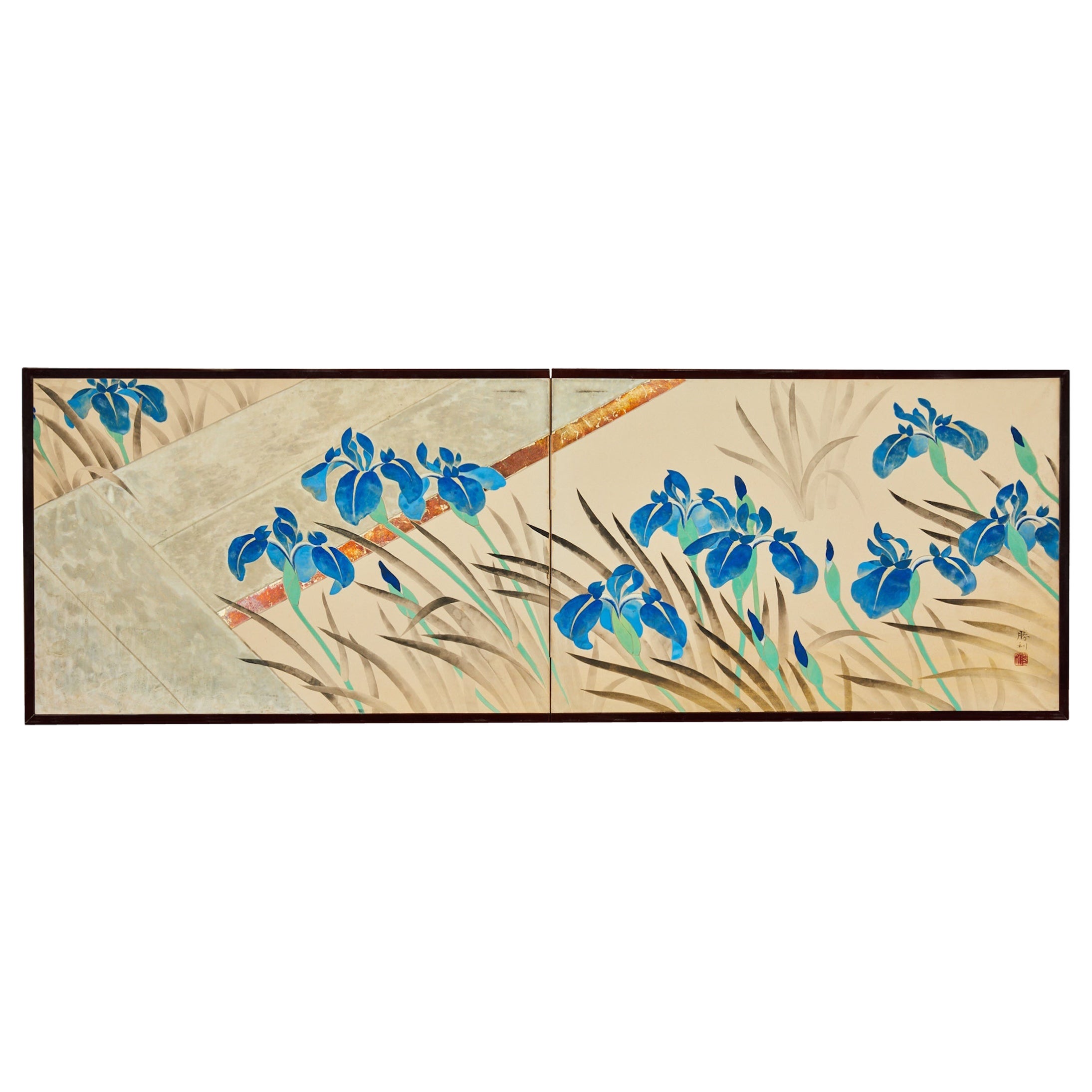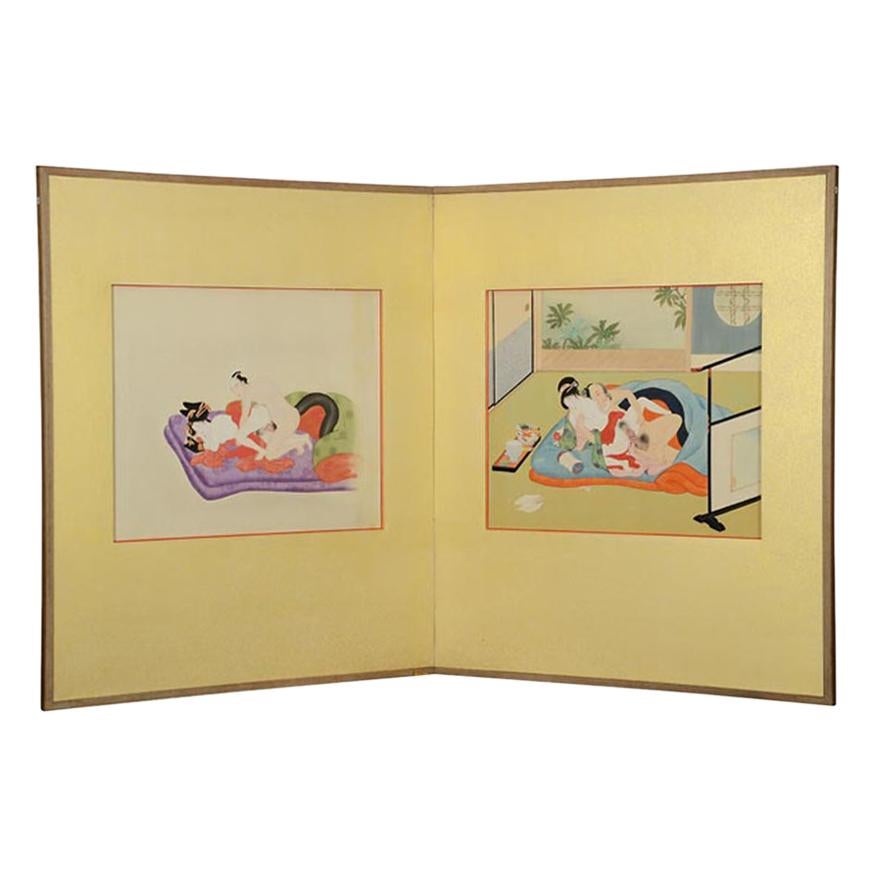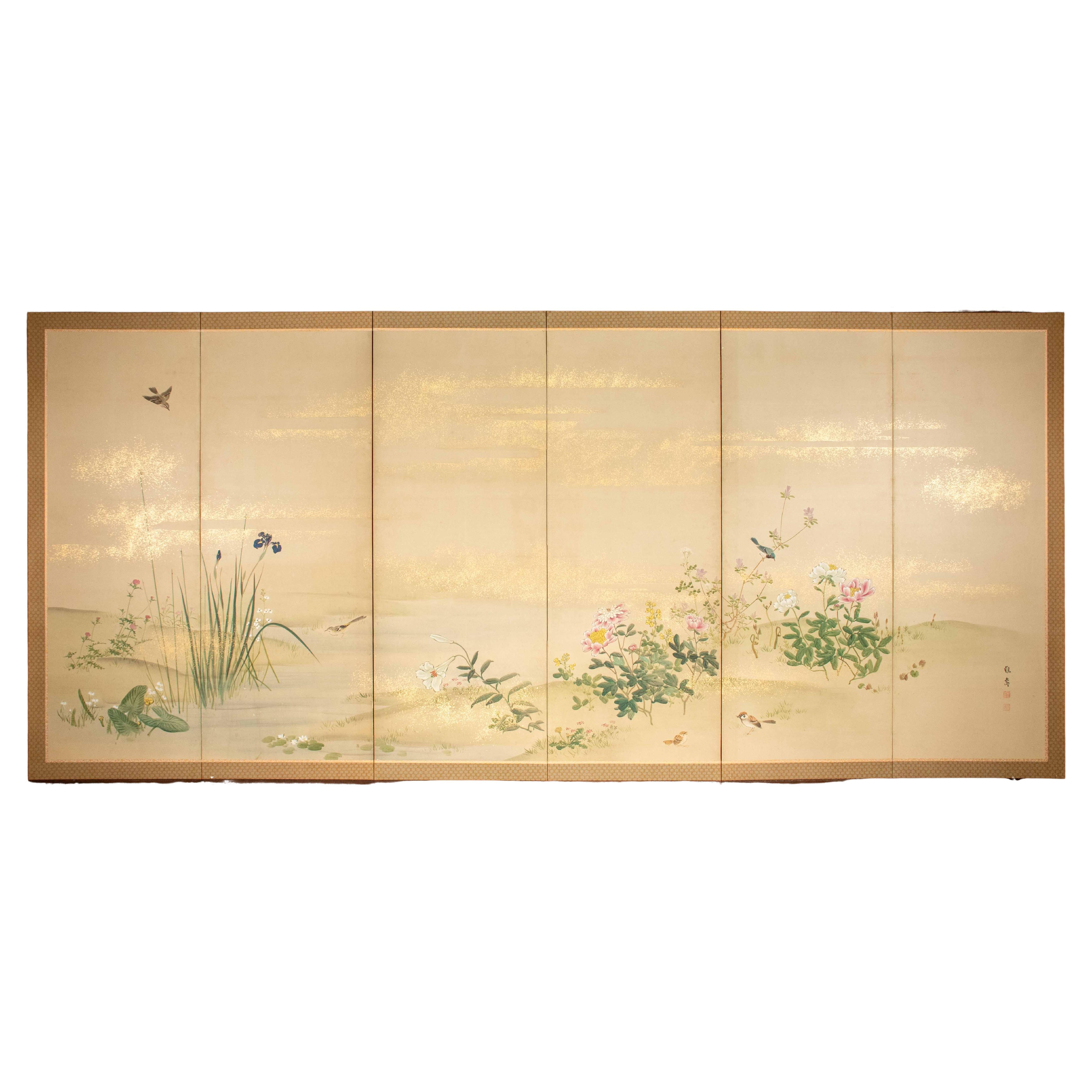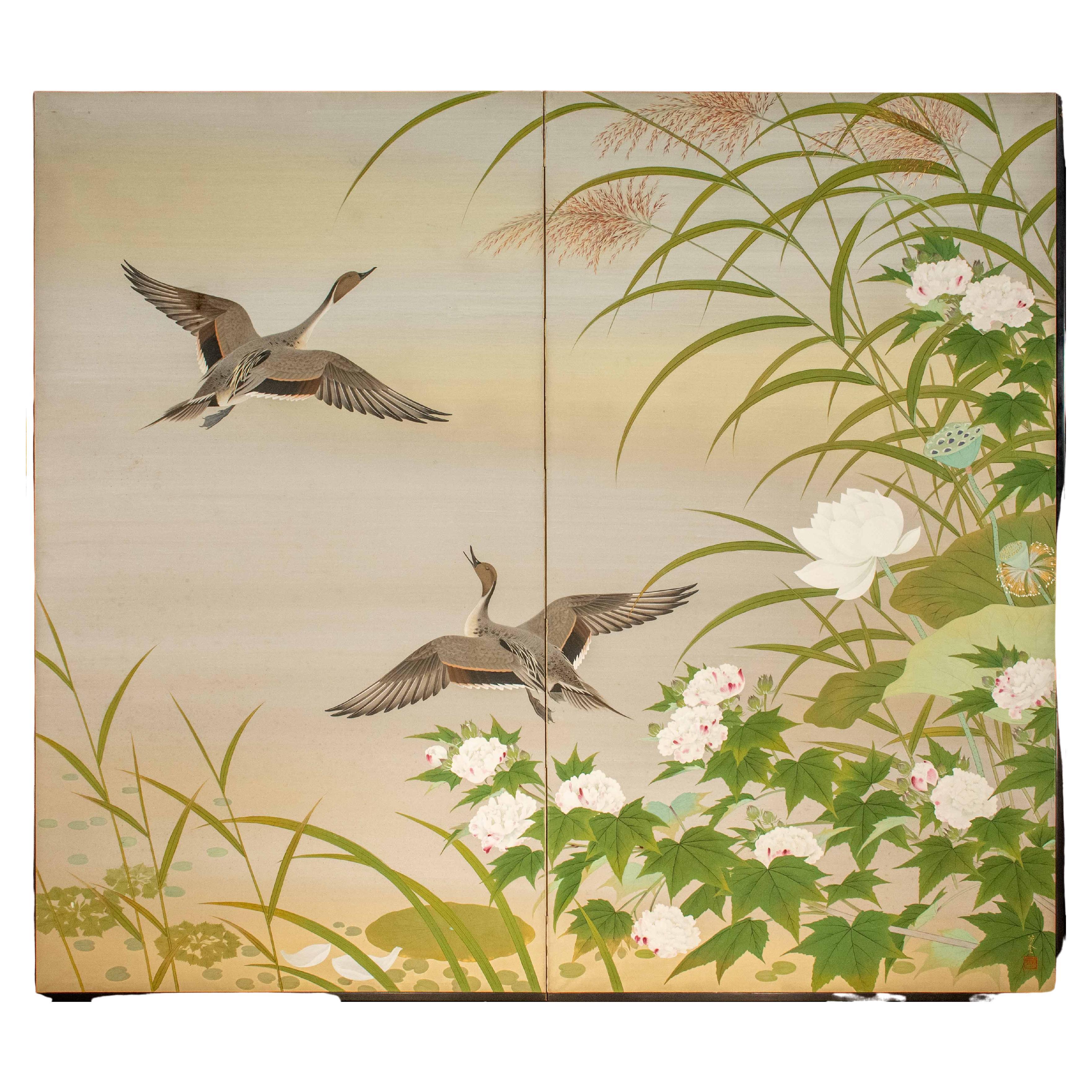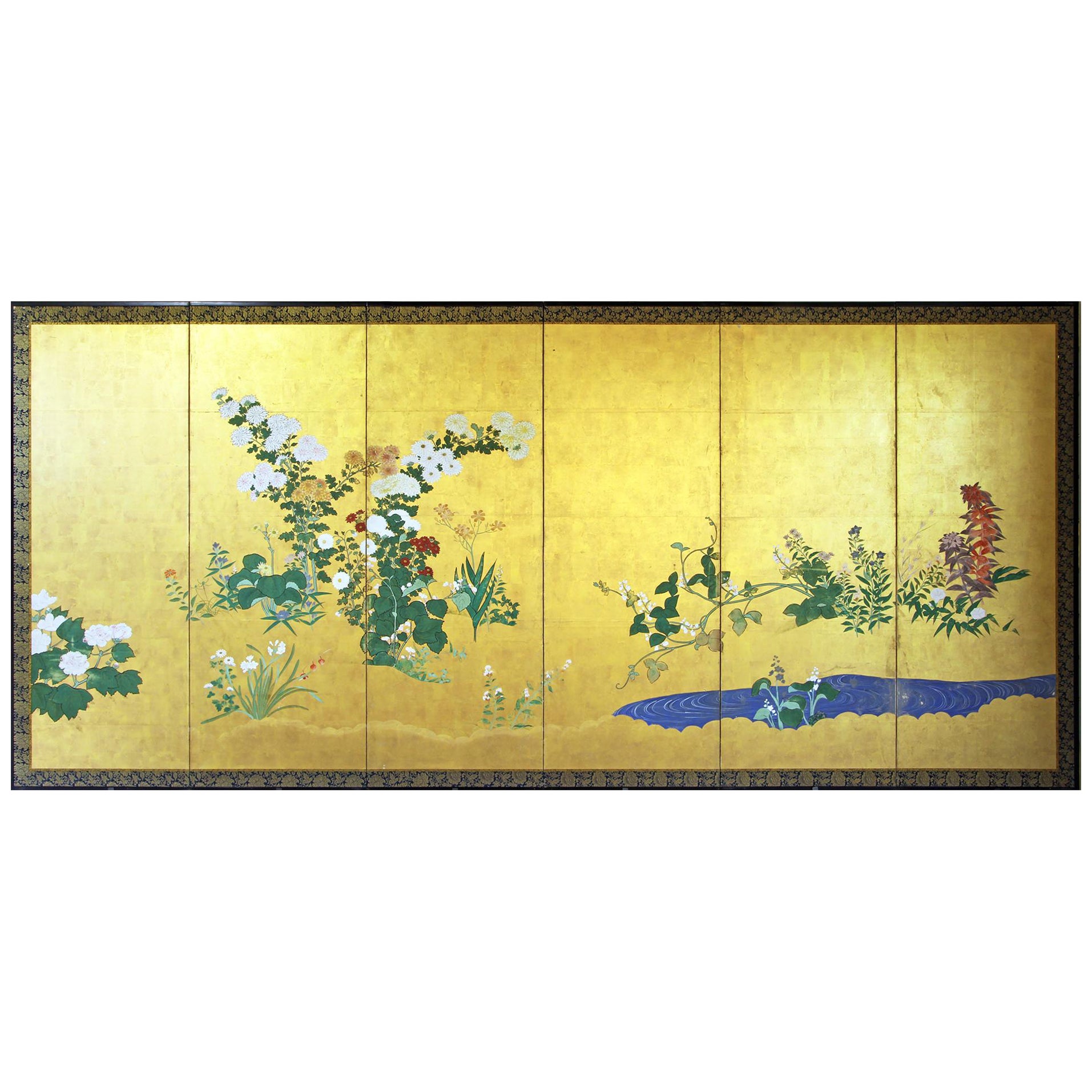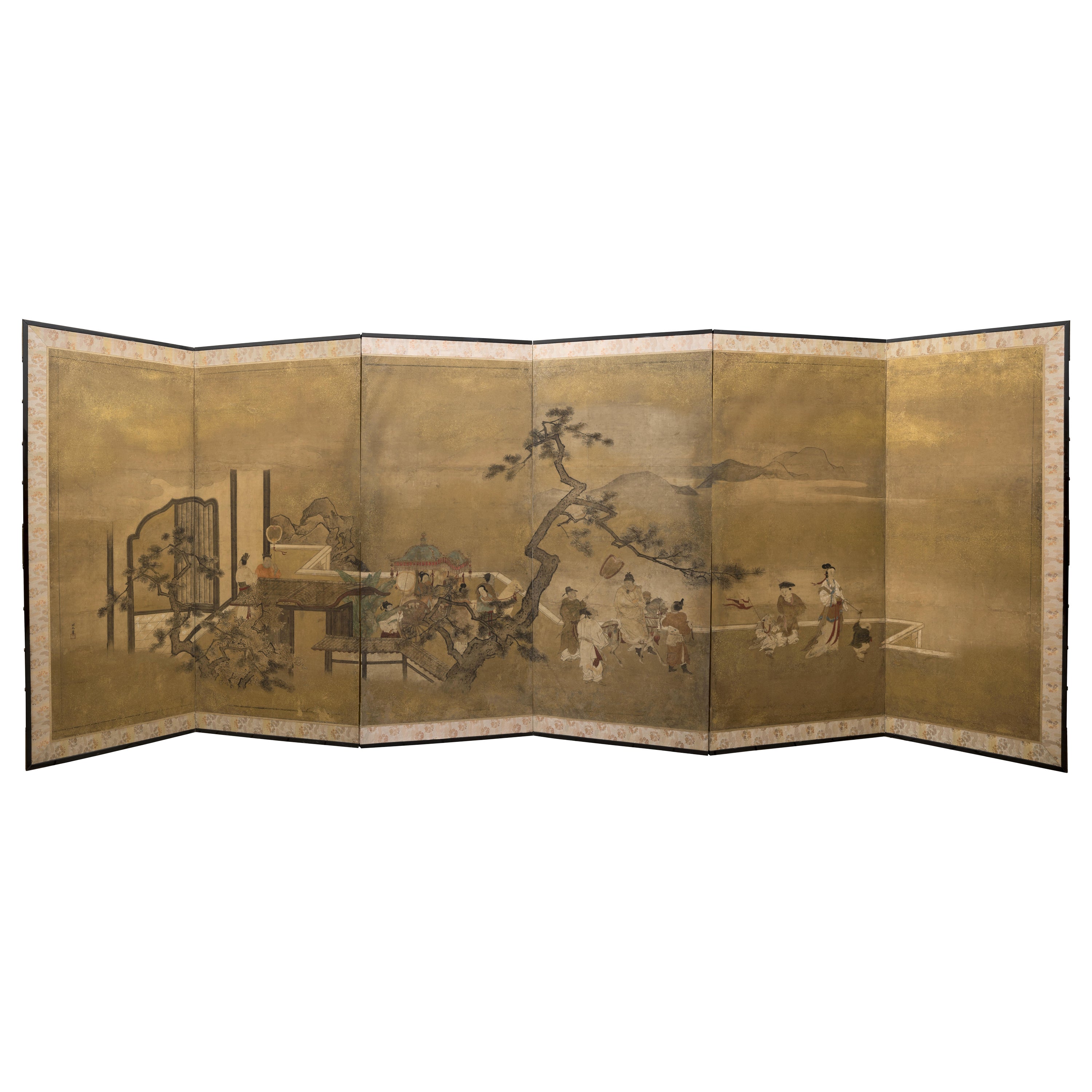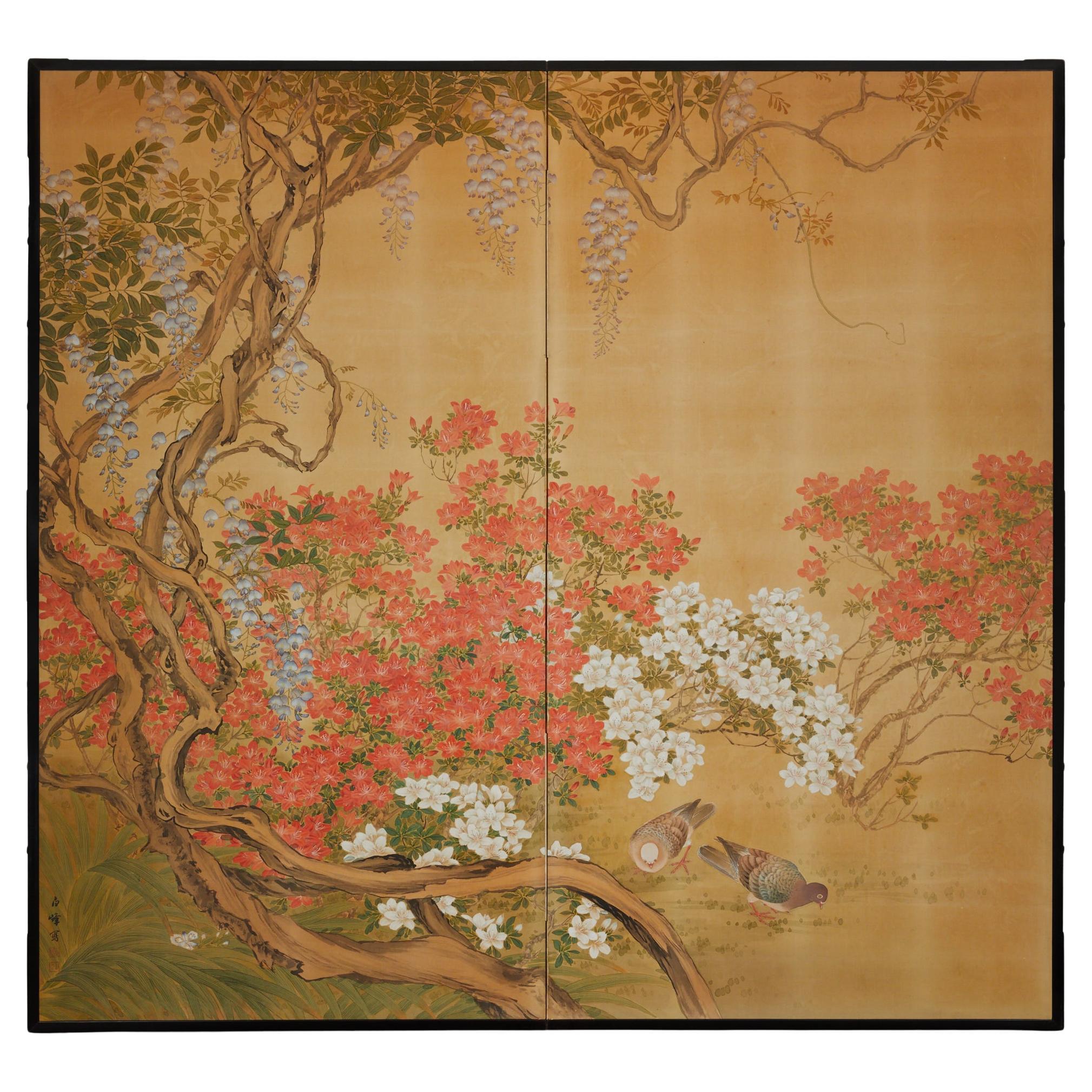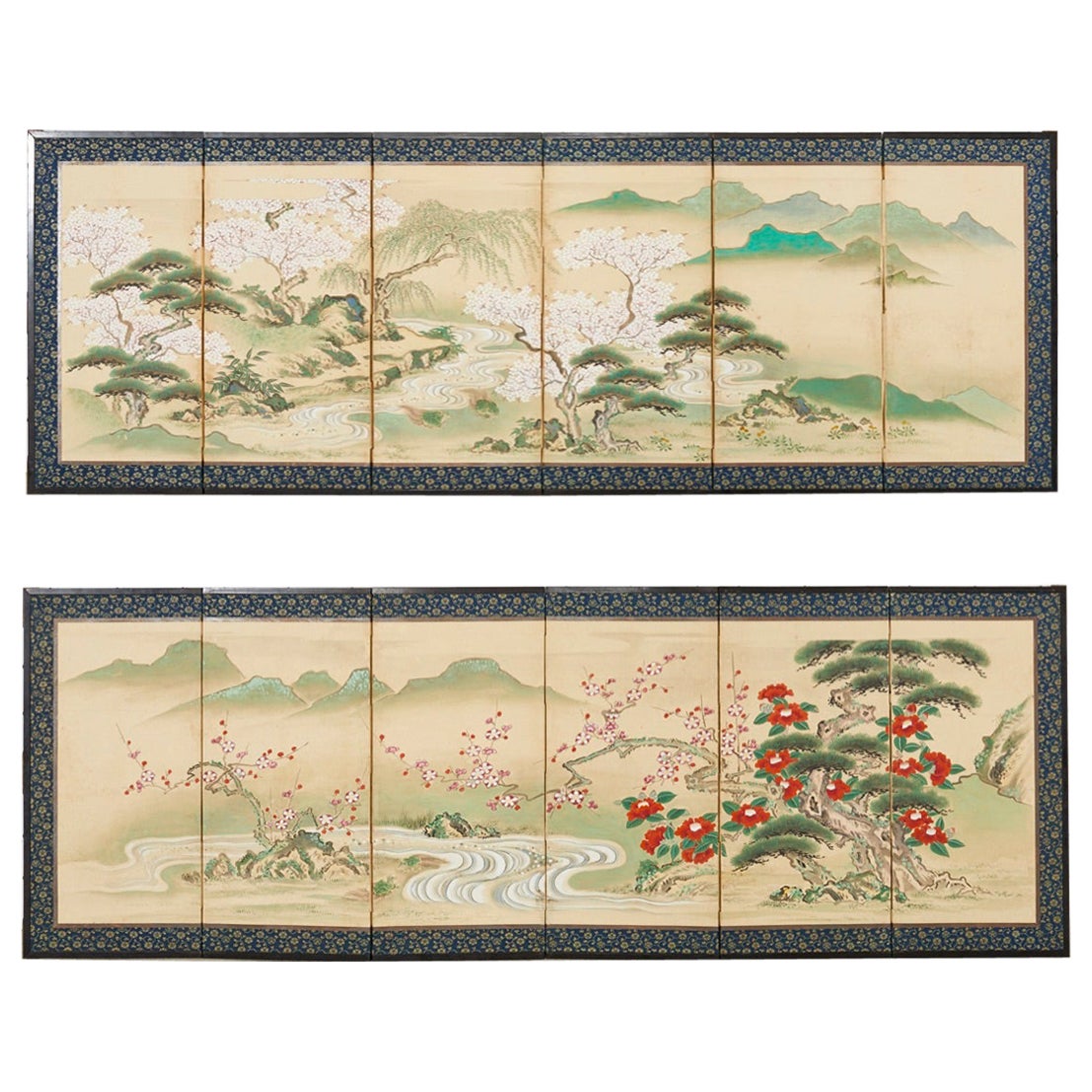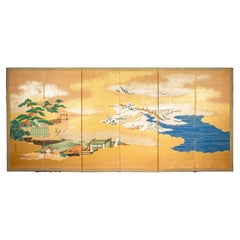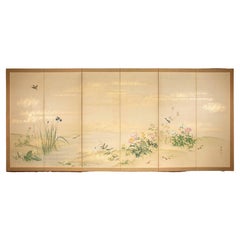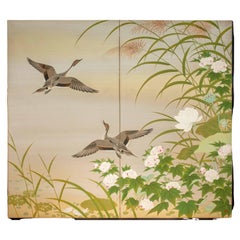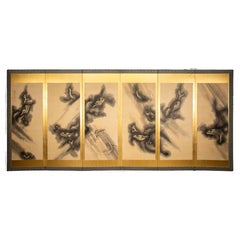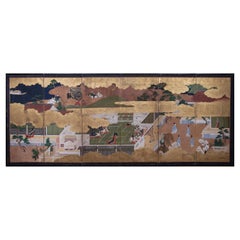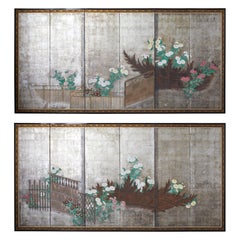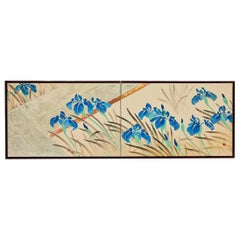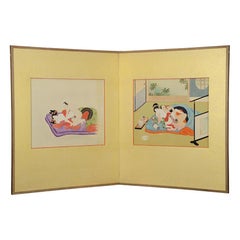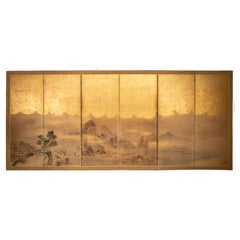
Paravento raffigurante un paesaggio lungo le rive di un corso d’acqua
View Similar Items
Want more images or videos?
Request additional images or videos from the seller
1 of 8
Paravento raffigurante un paesaggio lungo le rive di un corso d’acqua
About the Item
- Dimensions:Height: 67.33 in (171 cm)Width: 150.4 in (382 cm)Depth: 0.79 in (2 cm)
- Materials and Techniques:
- Place of Origin:
- Period:
- Date of Manufacture:Edo XIX sec.
- Condition:Wear consistent with age and use. Minor structural damages.
- Seller Location:Milano, IT
- Reference Number:1stDibs: LU9162244452442
About the Seller
No Reviews Yet
Recognized Seller
These prestigious sellers are industry leaders and represent the highest echelon for item quality and design.
Established in 2012
1stDibs seller since 2023
Typical response time: 1 hour
Authenticity Guarantee
In the unlikely event there’s an issue with an item’s authenticity, contact us within 1 year for a full refund. DetailsMoney-Back Guarantee
If your item is not as described, is damaged in transit, or does not arrive, contact us within 7 days for a full refund. Details24-Hour Cancellation
You have a 24-hour grace period in which to reconsider your purchase, with no questions asked.Vetted Professional Sellers
Our world-class sellers must adhere to strict standards for service and quality, maintaining the integrity of our listings.Price-Match Guarantee
If you find that a seller listed the same item for a lower price elsewhere, we’ll match it.Trusted Global Delivery
Our best-in-class carrier network provides specialized shipping options worldwide, including custom delivery.More From This Seller
View AllA six-panel folding screen depicting scenes from the Tales of Genji
Located in Milano, IT
Six-panel folding screen painted on paper, with pigments, gold dust and gold leaf, depicting two scenes from the Tales of Genji. The landscape is dominated by a Matsu with sinuous br...
Category
Antique 19th Century Japanese Paintings and Screens
Materials
Paper
A six-panel folding screen depicting a floral and a naturalistic scene
Located in Milano, IT
Six-panel folding screen, made on paper decorated with pigments and gold dust, depicting a floral and naturalistic scene. Among the flowers are blue irises, white lilies, and pink an...
Category
Antique Mid-19th Century Japanese Paintings and Screens
Materials
Paper
A Two-panel Screen Painted On Paper Depicting A Naturalistic Scene
Located in Milano, IT
Two-panel screen painted on paper, depicting a naturalistic scene with two pintail ducks in flight over a pond. In the foreground, lotus plants and peonies emerge from leaves and ste...
Category
Vintage 1920s Japanese Paintings and Screens
Materials
Paper
A six-panel screen depicting six dragons painted on paper with a gold leaf backg
Located in Milano, IT
Six-panel screen depicting six dragons painted on paper with gold leaf background. Each dragon, depicted flying in the clouds, shows different postures, movements and expressions. Th...
Category
Antique 19th Century Japanese Paintings and Screens
Materials
Paper
Lacquered Wooden Screen Decorated With A Peacock And A Refined Landscape
Located in Milano, IT
Majestic and rare lacquered wooden screen with an elegant peacock in the center that stands out among golden and silver clouds. The peacock is depicted on a gnarled cherry blossom tr...
Category
Early 20th Century Japanese Japonisme Paintings and Screens
Materials
Wood
Paravento a due pannelli con animali immersi in un paesaggio naturale
Located in Milano, IT
Paravento a due pannelli in seta, su cui scimmie, cervi e uccelli animano una scena ambientata in una foresta lussureggiante, tra rami intrecciati e un corso d’acqua, al cui centro s...
Category
Early 20th Century Japanese Paintings and Screens
Materials
Paper
You May Also Like
Important Japanese six-fold screen depicting The Tale of The Genji, 17th century
Located in Amsterdam, NL
An important Japanese six-fold screen, depicting episodes from The Tale of The Genji
Edo period, 17th century
Ink and colour on gilded paper, H. 155 x W. 380 cm
The Tale of Genji...
Category
Antique 17th Century Japanese Edo Paintings and Screens
Materials
Paint, Paper
Pair of Six Panel Japanese Edo Screens Chrysanthemums Along Fence
Located in Rio Vista, CA
Remarkable pair of early 19th century Japanese late Edo period screens depicting summer chrysanthemums growing along a brushwood fence. Ink and...
Category
Antique 19th Century Japanese Edo Paintings and Screens
Materials
Silver Leaf
Japanese Two Panel Screen: Irises Along a Raised Garden Walkway
Located in Hudson, NY
Furosaki (tea ceremony screen) Mineral pigments on mulberry paper with oxblood lacquer trim. Signature and seal read: Katsutoshi. On back it is titled: Irises (Kakitsubata) with a ...
Category
Early 20th Century Japanese Paintings and Screens
Materials
Lacquer, Paper
Japanese 2-Panel 'Shunga' Screen with Finely Painted Erotic Depictions of Lovers
Located in Prahran, Victoria
A very finely painted two panel 'shunga' screen with scenes of naked erotic lovers in union.
The scene on the left panel simply depicts the lovers in ...
Category
Mid-20th Century Japanese Showa Paintings and Screens
Materials
Wood, Paper
Edo Landscape Japanese Folding Screen
By Japanese Studio
Located in Brescia, IT
Refined work by a painter from the first half of the 19th century, from the landscape of the "Rinpa" school by a painter from the end of the 18th century, the Rinpa school.
Six panels painted in ink on gold leaf and "gofun" on vegetable paper.
The flowers are made with the "gofun" technique, natural or pigmented white oyster powder.
Rinpa is one of the major historical schools of Japanese painting. The style was consolidated by the brothers Ogata Korin (1658–1716) and Ogata Kenzan (1663–1743).
This folding screen has a very clean design that leaves plenty of room for the beautiful golden landscape.
It comes flat and you can easily hang it with our hooks.
Lucio Morini...
Category
Antique 18th Century Japanese Edo Paintings and Screens
Materials
Gold Leaf
Japanese Screen "the Song of Everlasting Sorrow"
Located in PARIS, FR
Six-panels screen depicting the exit from the city of a Chinese emperor on horseback and his concubine in a luxurious palanquin.
It may be a scene illustrating the poem The Song of Everlasting Sorrow (Chang hen ge, ???) written by Bai Juyi (772-846), which recounts the tragic love story between the emperor Ming Huang (also known as Tang Xuanzong, 685-762) and his favorite concubine, the beautiful Yang Guifei...
Category
Antique Late 17th Century Japanese Paintings and Screens
Materials
Silk, Wood, Paper
Recently Viewed
View AllMore Ways To Browse
8 Panel Coromandel
Japanese 3 Panel
Japanese Cherry Tree Screen
French Rectangular Planter
Mid Century Cherry Coffee Table
Belgian Oak Coffee Tables
Italian Brass Etagere
Coconut Chair
Italian Breakfront
Barovier Toso Flower Chandelier
Italian Brass Clock
Molteni Sofa
Blue Glass Oil Lamp
Chinese Blue And White Jardiniere
French Striped Armchairs
Danish Travertine Coffee Table
Mid Century Modern Sewing Tables
Italian Burl Wood Desk
